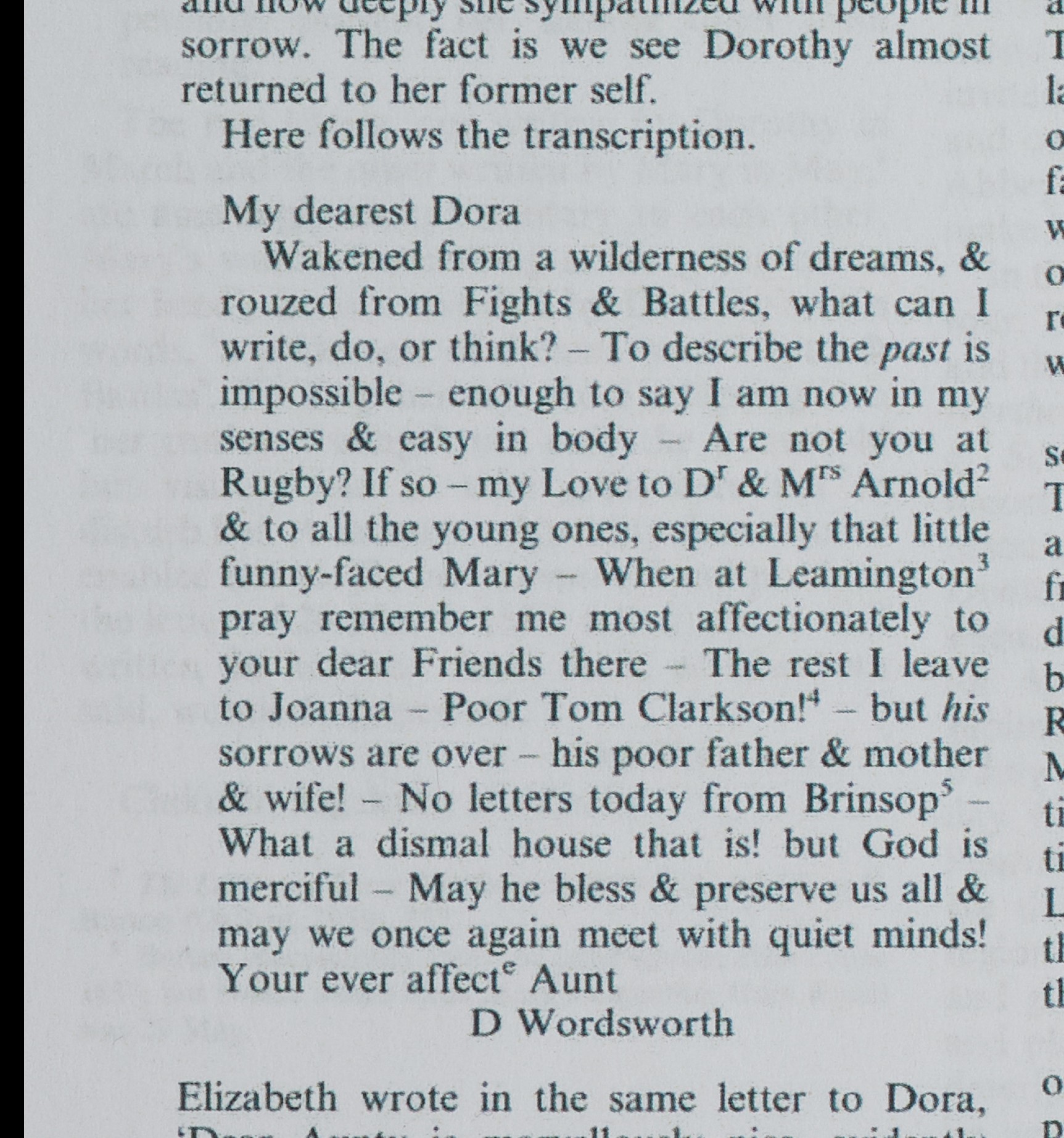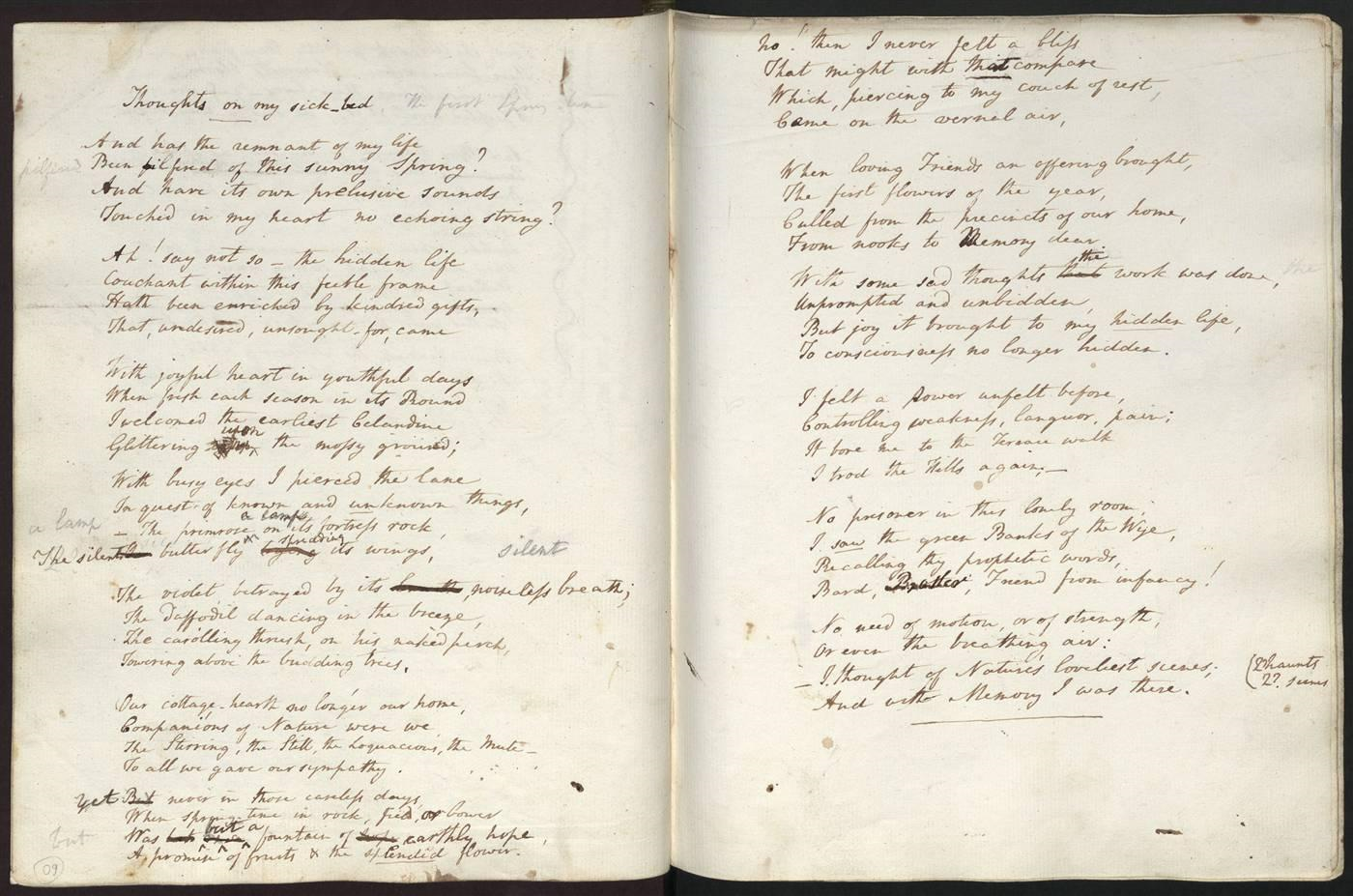The letters, journals, and poetry of Dorothy Wordsworth’s later years shed light on her declining physical and mental health, as she was largely home-bound by illness from 1829 onward. Such texts reflect Dorothy’s dependence on her familial relationships, her community, and her connection with nature to support her during her waves of discomfort and inconsistent lucidity. Her writing afforded her a space to process and wrestle with her disability. In one of her poems, "Thoughts on My Sick-Bed," she relies on both personal memory and William’s poems about their moments together to escape the prison of “this lonely room.” Hearkening back to her past allowed her to turn her old experiences into new ones that would sustain her and allow her to regain in some ways the life to which she could not physically return.



This display case assembled by Abigail Clayton, Tiffiny Smart, and Thomas Sorensen.